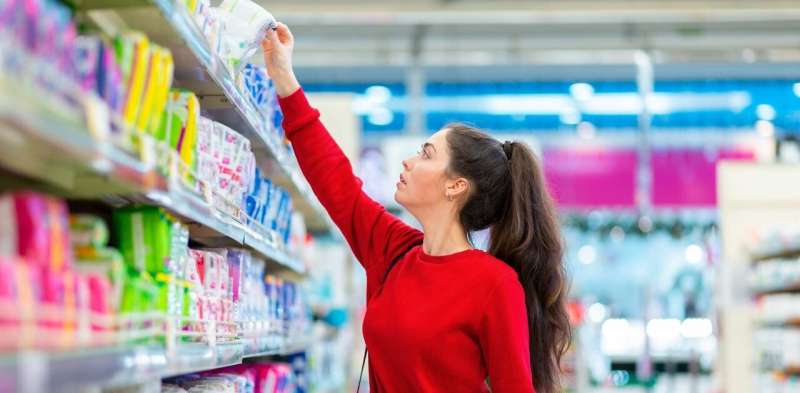
Upward of 2.8 billion people do not have access to safe sanitation. A third of the world’s population doesn’t have a toilet.
This broad, international issue links to poverty, destitution and environmental risk. It also provides the backdrop to the struggles women and girls the world over face in dealing with their period. At least 500 million women and girls lack access to adequate facilities to manage menstruation.
“Period poverty” describes these barriers, from the cost of sanitary products and access to toilets to being excluded from activities ranging from the classroom to sport. But the challenges don’t stop there.
Research shows that in communities shaped by repressive patriarchal systems, menstruating is still seen as a taboo subject. And with that comes shame and embarrassment. Further, when you’re young and just getting used to having a period in the first place, commercial advertising that, as Australian communication design expert Jane Connory has shown, sexualizes or suggests needing to keep your period a secret, is damaging.
Why free products are only part of the solution
In Britain, it is estimated that up to 49% of girls have missed school due to their period. This appears to be primarily linked to the cost of period products. The simple solution, here, is to make these accessible and free.
Of the four UK nations, Scotland in particular is taking steps towards this. Following a successful pilot scheme in Aberdeenshire, in 2018 the Scottish administration made period products free for people from low-income households across the nation.
Research shows, however, that money is only part of the problem. Many women and girls are socially disadvantaged, with information and education about periods seriously lacking.
When shame is felt in relation to an issue, it results in people being reluctant to search out the information they need, to their own detriment. Embarrassment is compounded by a lack of adequate sex education, the latter often taught to girls only.
Research shows that up to half of girls in the UK are embarrassed by their period and that support in school is lacking. According to the Sex Education Forum, a charity focused on relationships and sex education, one in four young women did not learn about periods before they got theirs, a number which appears to be rising. This may have been further affected by the pandemic lockdowns and resulting school closures.
Girls and women may be forced to lie about periods so as not to take part in certain activities, such as physical education, due to the taboo and ingrained stigma around periods that endure in wider society. This appears to stem from periods, historically, being framed as a medical issue rather than a positive indication of the natural workings of the reproductive system and body.
Opening up the dialogue across genders within relationships and improving sex education within schools is crucial. But business has a lot to answer for, too.
How companies can make things worse
Misguided advertising campaigns that seemingly aim to break down stigma often inadvertently feed into it instead. This compounds the feelings of shame that surround periods.
In November 2022, Tampax US deleted a tweet from its official account, apologizing for “messing up” and not being respectful while pledging to “do better.” The tweet, which read: “You’re in their DMs. We’re in them. We are not the same,” drew particular ire for appearing to sexualise the use of a tampon, referencing the social media trope of “sliding” into someone’s DMs—direct messaging them as a flirting strategy.
This messaging harked back to the 1970s adverts for Dr. White’s which showed women in bikinis and underwear to advertise sanitary products. In the 1980s, Tampax used scantily clad prepubescent girls to advertise its products. Decades on, in 2015, advertisers for Thinx period pants opted for pictures of halved grapefruit and runny eggs, imagery suggestive of female anatomy.
Advertising that attempts to make sanitary products fun and edgy often links periods to sex. That’s because periods are profitable for those companies that make disposable products such as tampons and sanitary towels, and sex sells.
However, some girls start their periods as early as age nine, which makes such sexualisation of period products even more damaging. Research has shown that the common age for periods to start is indeed early, anywhere from ten years old.
What’s more, this type of advertising co-opts the language of empowerment for women and girls, thereby driving home the point about periods being something to be ashamed of. It can also be a subtle steer away from low-cost products such as menstrual cups, washable pads and period pants.
It is a common misconception that period poverty is only an issue for those who are menstruating. Many men and those who do not have periods also suffer as a result, either due to the financial impact of buying disposable products on a family’s budget, or the indirect impact that missed school and work days have on the wider class or workforce.
For many women and girls, menstruation can cause isolation and negatively affect their self-esteem and sense of dignity. Free period products and being able to deal with your period without shame or restrictions should be a basic human right.
Provided by
The Conversation
This article is republished from The Conversation under a Creative Commons license. Read the original article.
Source: Read Full Article
